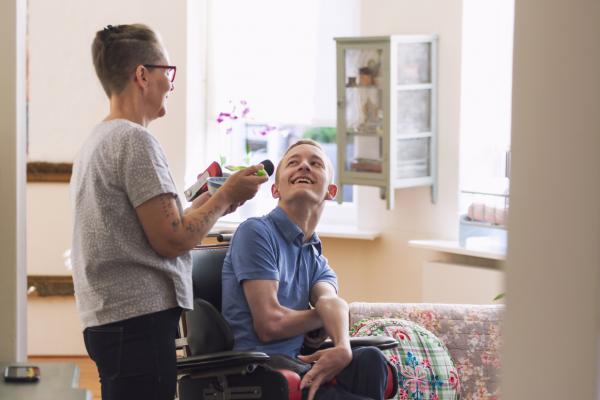We’ve spoken about respite care and the circumstances that sometimes surround respite care placements on the blog before. Let’s now look at one particular area of respite care more closely – respite care for children with special needs.
We’ll examine when this type of care may be required, help you decide whether you might like to apply to be a respite carer and it will also encourage you to consider additional steps or training that you may need to take in order to become involved in respite foster care.
Respite care is typically foster care that is provided in short bursts to provide relief either for a child’s home family carer or foster carer.
As a respite carer, you will offer families a much-needed regular break from caring for a child with special needs, though the format of the arrangement will vary according to individual circumstances.
You may be asked to look after a child for just a few hours each week, perhaps overnight on a weekend, or you could provide a stimulating and caring place for a child with special needs to stay while their family takes a slightly longer break or holiday of a week or two weeks.
The children you care for are likely to need extra care and attention and may display challenging behaviour, have a physical disability, or additional learning needs. This is why it’s important to prepare for what is an intensive caring role.
We welcome applications from anyone who is interested in respite care. However, providing a safe and nurturing environment for children with special needs may require additional skills or training. Some of the things you need to be prepared for are:
Any experience you have in looking after children with challenging behaviours will be beneficial should you apply to be a respite carer, but remember our support team are also on hand to prepare you and help you to understand complex health needs too.

When caring for a child with physical disabilities, you may be required to make alterations to your home in order to protect their comfort and safety. This could range from ensuring you can accommodate specialist equipment in your home through to bigger changes such as having ramps or a wet room fitted that are suitable for use by wheelchair users. In certain cases, alterations are paid for by us or the Local Authority.
The part respite carers play in helping whole families as well as individual children cannot be understated.
Whether you look after a child for a few hours each Saturday afternoon so that their parents can go shopping or spend time with siblings, or you regularly take a child to a particular activity – it’s a highly rewarding position.
Not only does respite care give regular carers valuable time to relax and refresh but it also allows children with special needs to expand their own horizons, this can help them explore independence and help them reach their full potential.
To be sufficiently prepared to meet a child’s specific needs you may be asked to undergo additional training – perhaps to ensure you can administer medication correctly or to help you communicate with children with additional needs more effectively – all of which will help open up new fostering possibilities for you.
In some cases, foster carers who are skilled and experienced in respite care for children with disabilities will receive a higher fostering allowance. The amount varies, depending on the requirements of each child.
Learn more about the types of foster care NFA is involved with and how we can support you in your goal of becoming a respite carer. If you’re ready to talk to your local team, fill out our quick enquiry form.